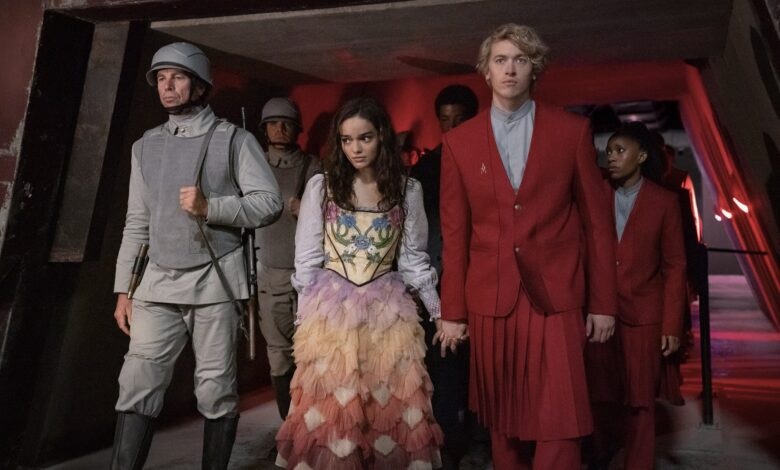The Hunger Games: The Ballad of Songbirds & Snakes (Lawrence, 2023)
For just a moment in the first act of the new Hunger Games movie, it looked like the franchise was going to give President Snow the full Darth Vader treatment, and I had to decide if I was on board with that approach. Was I really interested in what his motivations were? Would humanizing him retroactively make him more sympathetic or make his non-redemption in the original franchise more tragic?
I decided I was, but then my deliberations turned out to be for nothing since the rest of the film settled into the same bland thematic porridge the rest of its entries tasted like.
I’ve always found The Hunger Games to be more than passable entertainment for a franchise that I paradoxically thought did nothing particularly well. The characters are just this side of caricatures. The world-building is so thin that it wasn’t until watching a fan’s YouTube video last year that I even knew that Panem was supposed to be The United States. I read half of the first book and found Collins’s prose worse than Meyer’s in Twilight. Each of those may very well be a minority opinion, but the A-list treatment of B-list material has a long history in Hollywood, and darned if the whole thing didn’t work as some Young Adult self-aware parody of Clockwork Orange or something. The most important element of the whole enterprise was that I never felt anyone in it was taking it too seriously.
Ballad of Songbird and Snakes has no such self-effacing modesty. Viola Davis and Rachel Zegler decide to pitch their tents just this side of camp, and that would work well enough if the rest of the movie followed suit. But Tom Blyth and Peter Dinklage are just this side of morose. And absent any real attempt to construct a world that each of these characters could actually inhabit, we get Left Behind-like world-building…postulating government entities, surveillance technology, and cultural development that is all whatever the story needs it to be at the current moment. Could a vat of snakes less than twenty feet tall hold enough of those creatures to fill the entire floor of an arena? If you had the technology to digitally block the feed for the Hunger Games why would you need to even run it? Why not just Capricorn One the whole thing? And no, turning “what are the Hunger Games for?” into a university exam question does not let the authors off the hook for not being able to say with much clarity what the Hunger Games are for.
In a movie that actually cared about the questions it raised, the absence of answers might itself be noteworthy or thematic. It might, for instance, point to obvious answers we don’t want to consider (blood lust) or invest some sort of plot stakes in a series of potential answers. I guess maybe it gestures at the idea that nobody in them really knows why either, so maybe we are all just like Nazi Germany going along with the crazy ideas of some crazy guys who aren’t even true believers themselves. That being the case, I’m unsure how the rise of Snow is meant to shed any interpretive light on the rest of his career. Prequels are all the rage, I guess, but have any of them–Ashoka, House of Dragon, The Rings of Power, Obi-Wan Kenobi, Fantastic Beasts, The Many Saints of Newark–added any element that enriched the core franchise rather than diluting it?
So why have a prequel instead of a sequel anyway? Could it be because making it a sequel would mean that either the actual Hunger Games came back (making the resolution of the first series undone) or making a film set in the Hunger Games universe without actually having any Hunger Games in it. That would make as much sense as setting a movie in the Saw universe and not having any gruesome traps. Maybe the answer to the question “What are the Hunger Games movies for” is the same as the answer to the question “What are the Hunger Games for?”
Because we like watching people (including kids) kill each other in gladiatorial combat so much that we can’t bloody well have a movie without it.

